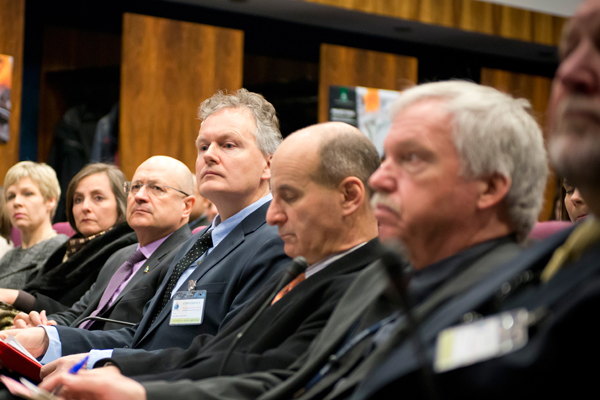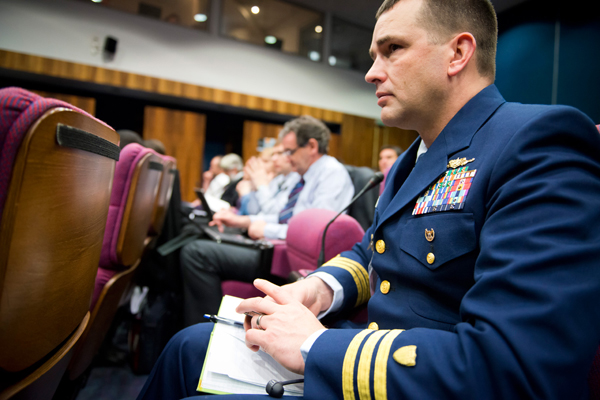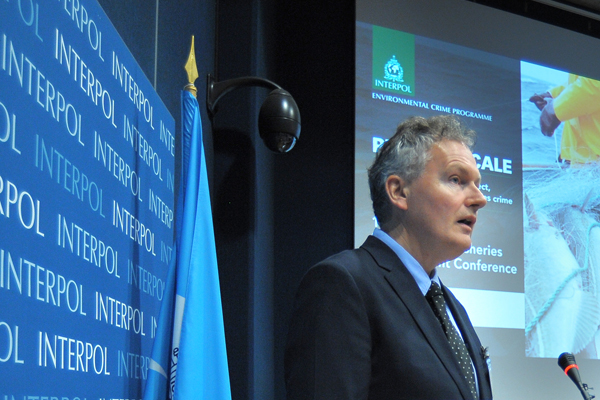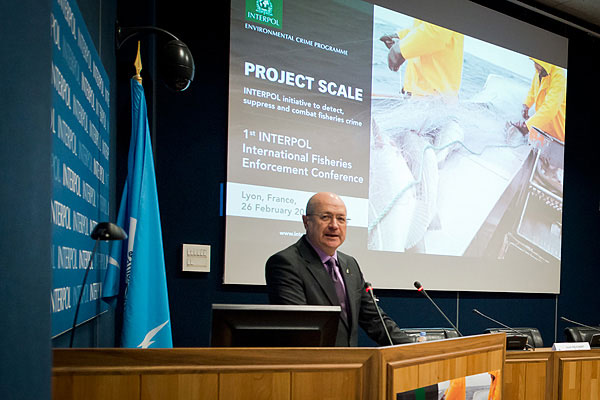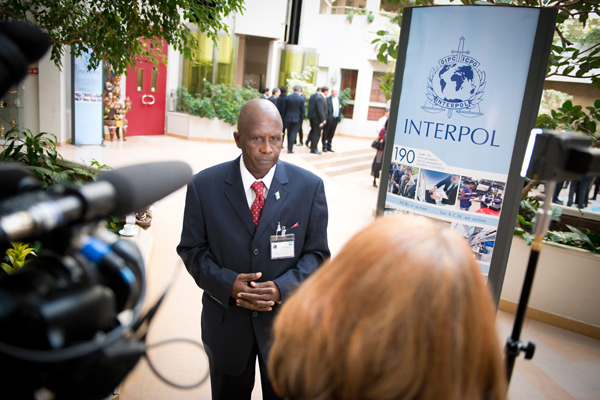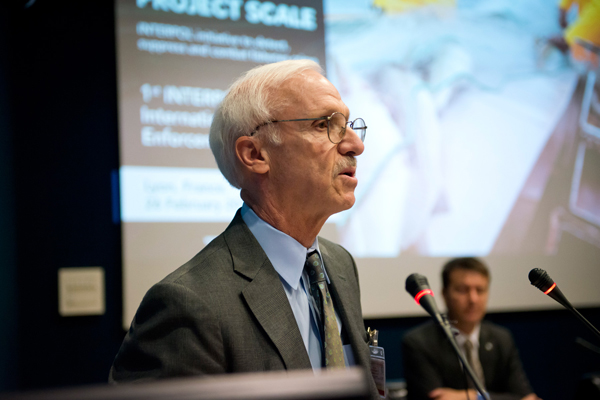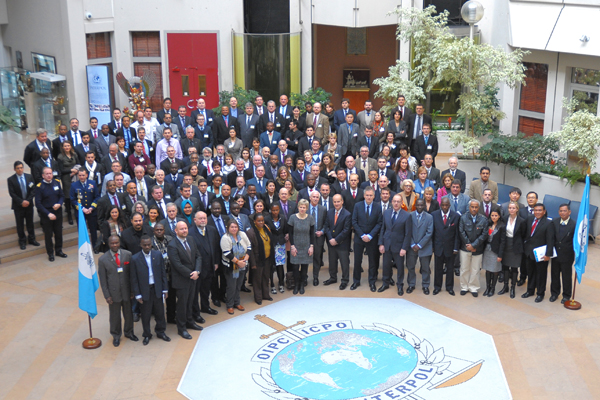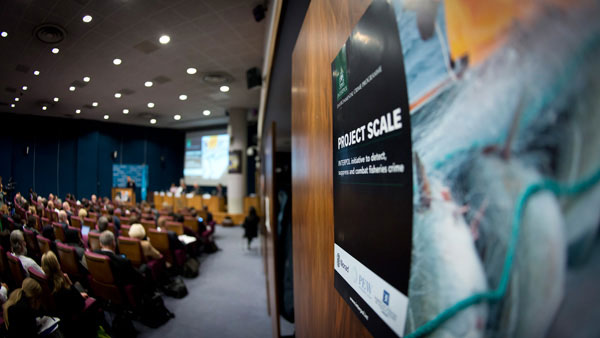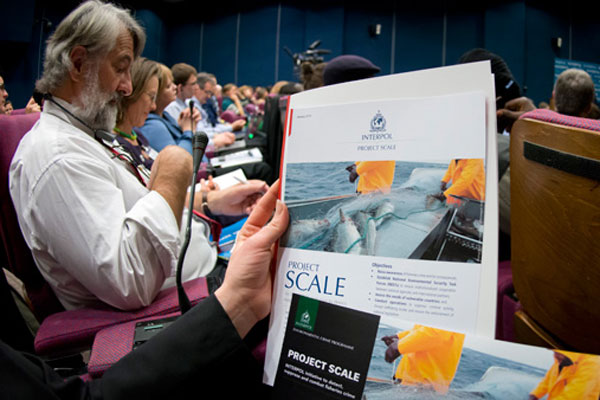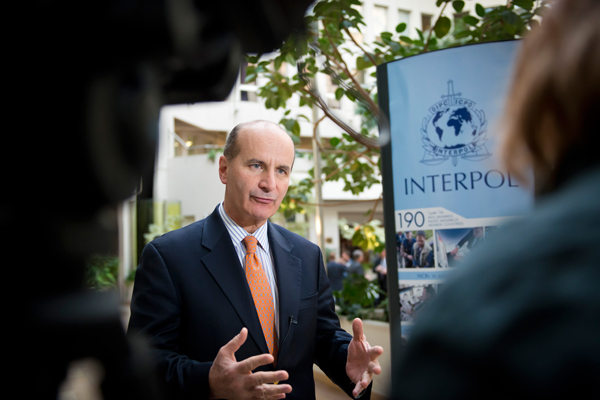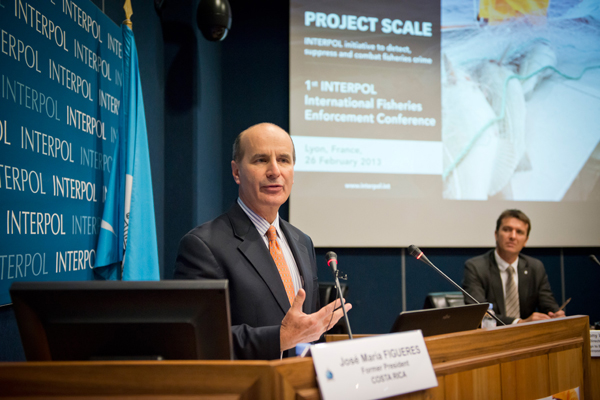LYON, France – INTERPOL has launched Project Scale, a global initiative to detect, suppress and combat fisheries crime which is estimated to cost the global economy up to USD 23 billion each year and is linked to other forms of serious transnational crime including corruption, money laundering, fraud, human and drugs trafficking.
Funded by the Norwegian Ministry of Foreign Affairs, the Norwegian Agency for Development Cooperation (NORAD) and The Pew Charitable Trusts, in addition to raising awareness of fisheries crime, Project Scale will coordinate operations to target this criminal activity, disrupt trafficking routes and harmonize national and regional enforcement efforts.
With the project unveiled at INTERPOL’s International Fisheries Enforcement Conference (26 February) at the General Secretariat Headquarters in Lyon, France, INTERPOL’s Executive Director of Police Services, Jean-Michel Louboutin said Project Scale will ‘close the net on criminals who are exploiting the world’s natural resources.’
“INTERPOL’s global network and databases means that information about fisheries crime can be exchanged and acted upon in real time, and provide vital training to ensure that frontline officers have the knowledge and expertise they need.
“Tackling transnational crime cannot be done without support and partnerships, and Project Scale will see INTERPOL work with all those involved – law enforcement, non-governmental agencies and the private sector – in providing a unified and collective response to fisheries crime,” added Mr Louboutin.
In his keynote address to the 200 participants from 63 countries, former President of Costa Rica José María Figueres highlighted the need for increased governance in the area of illegal fishing.
“Project Scale, led by INTERPOL, is a wonderful step forward in identifying, reducing and hopefully stopping illegal fishing by adopting a comprehensive approach to the problem,” said Mr Figueres, co-chair of The Global Ocean Commission.
“Illegal fishing is a problem where we are long on scientific and practical solutions, but where we need to develop political will,” added Mr Figueres.
Arne Benjaminsen, Secretary General of Norway’s Ministry of Fisheries and Coastal Affairs said, “Project Scale is a unique initiative and given the transnational crime links to illegal fishing, I am convinced of the need for INTERPOL to be involved in addressing this global problem.
“This is the first time in history that transnational fisheries crimes are being discussed at the global level and underlines the need for global cooperation in investigating the criminal aspects tied to illegal fishing,” added Mr Benjaminsen.
“Preserving the seas from illegal fishing is equivalent to the last buffalo hunt,” said Josh Reichert, Executive Vice President of the Pew Charitable Trusts.
“This conference and Project Scale is a vital part of our vision of a global system to stop fisheries crime and is the beginning of new efforts by the international community to significantly reduce illegal fishing.”
In addition to undermining resource conservation, fisheries crime threatens food security and livelihoods and can destabilize vulnerable coastal regions. Among the illegal activities carried out are the harvesting of prohibited species, and fishing out-of-season, over the set quota or without a license.
“As with all types of environmental crime, developing awareness among law enforcement and governments is essential, to ensure that appropriate legislation is in place so that police can take action,” said David Higgins, Head of INTERPOL’s Environmental Crime Programme.
“Project Scale is the latest in INTERPOL’s ongoing efforts to support our member countries to more effectively tackle environmental crime no matter where it is committed,” added Mr Higgins.
Project Scale, which will gather and analyse information and intelligence on all types of crime linked with illegal fishing, including tax and customs evasion, will be supported by the creation of a Fisheries Crime Working Group and National Environment Security Task Forces.




